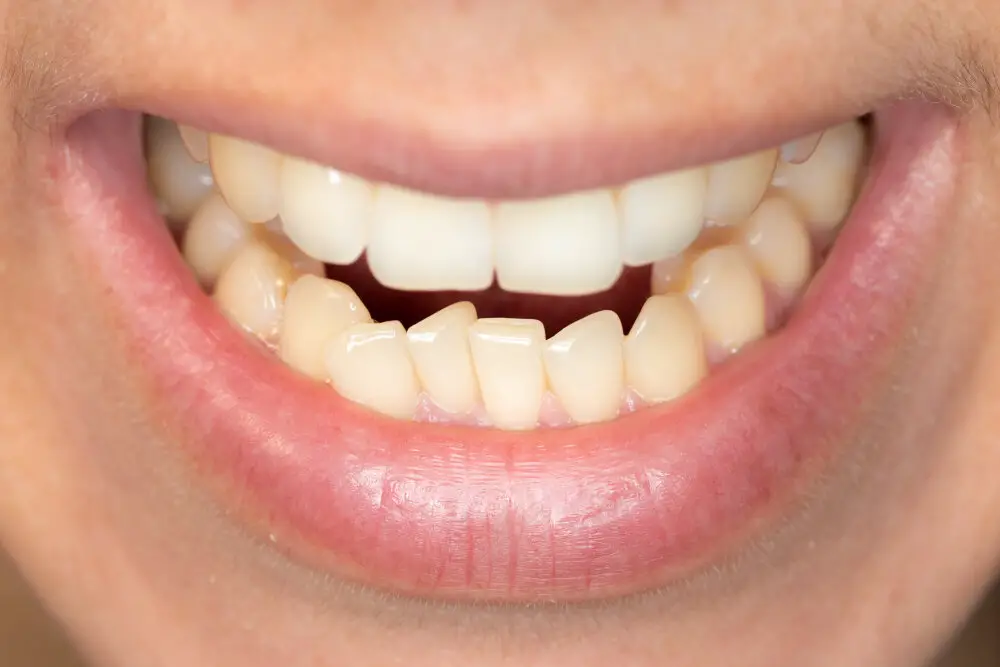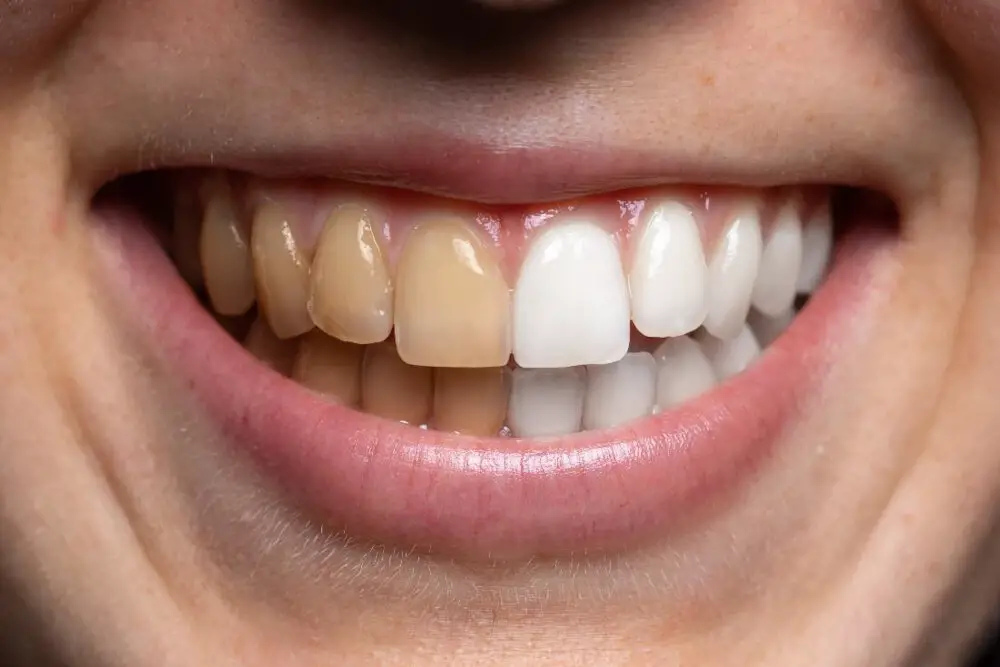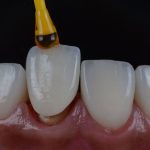Signs of Impending Wisdom Teeth: How to Recognize the Symptoms

Wisdom teeth are the last set of molars that appear in the mouth, usually between the ages of 17 and 25. These teeth can be a major source of discomfort for many people, causing pain, swelling, and other dental problems. It’s important to recognize the signs of impending wisdom teeth so that you can take action before the symptoms become too severe. One of the most common signs of impending wisdom teeth is pain in the back of the mouth. This pain can be mild or severe, and it may come and go. Some people may also experience swelling or tenderness in the gums around the wisdom teeth. In some cases, the pain may radiate to the jaw or ear, and it may be accompanied by a headache. If you’re experiencing any of these symptoms, it’s important to see a dentist as soon as possible.
Wisdom teeth are the third set of molars that typically emerge in late adolescence or early adulthood. These teeth were once necessary for our ancestors who had larger jaws and needed the extra teeth to chew tough, coarse foods. However, as our diets have evolved and our jaws have become smaller over time, wisdom teeth have become less essential. In some cases, wisdom teeth can cause problems such as crowding, infection, or impaction. As a result, many dentists recommend removing them before they cause any complications. Signs of impending wisdom teeth include pain, swelling, redness, and difficulty opening the mouth. If you experience any of these symptoms, it’s important to see a dentist or oral surgeon for evaluation and treatment.
Recognizing the symptoms of impending wisdom teeth is crucial to ensure timely treatment and avoid potential complications. Common symptoms include pain, swelling, and discomfort in the back of the mouth. It is important to note that these symptoms can also be a sign of other dental issues, so it is essential to visit a dentist for a proper diagnosis. Ignoring these symptoms can lead to infection, damage to nearby teeth, and even the development of cysts or tumors. By recognizing the symptoms early on, individuals can receive appropriate treatment and maintain good oral health.
Understanding Wisdom Teeth

Wisdom teeth or third molars are the last set of adult teeth that typically emerge between the ages of 17 and 25. These teeth are located at the back of the mouth, one on each side of the upper and lower jaws, and are often associated with pain and discomfort. In some cases, the wisdom teeth may grow normally without causing any problems, while in other cases, they may become impacted, which means they are unable to erupt properly due to lack of space. This can cause pain, swelling, infection, and damage to surrounding teeth and gums. Some common signs of impending wisdom teeth include pain or discomfort in the back of the mouth, swelling or tenderness in the gums, difficulty opening the mouth, and a bad taste or odor coming from the back of the mouth. Other symptoms may include headaches, earaches, and pain or stiffness in the jaw. If you are experiencing any of these symptoms or suspect that your wisdom teeth may be causing problems, it is important to visit your dentist or oral surgeon for an evaluation. They can take X-rays and assess the condition of your wisdom teeth to determine if they need to be removed or if other treatment options are available.
Wisdom teeth are the last molars that appear in the back of the mouth usually during the late teenage years or early adulthood. These teeth are also known as third molars and the human mouth typically has four of them. However, some people may have more or less than four. Wisdom teeth can cause various dental problems if they don’t have enough space to grow or if they grow in an incorrect position, leading to gum infection, tooth decay, and other complications. Therefore, it’s important to recognize the symptoms of impacted wisdom teeth and seek dental treatment if necessary.
The timing of wisdom teeth eruption varies, but typically they come in between the ages of 17 and 25. However, some people may experience their wisdom teeth eruption earlier or later than this range. In some cases, wisdom teeth may not erupt at all or may only partially erupt. The process of wisdom teeth eruption can cause discomfort and pain, and it is important to recognize the symptoms of impending wisdom teeth in order to seek proper treatment and avoid potential complications.
Wisdom teeth are the third molars that typically emerge between the ages of 17 and 25. Most people have four wisdom teeth, one in each corner of the mouth. However, some individuals may have fewer or more, or they may not develop at all. The presence of wisdom teeth can cause various problems, including overcrowding, impaction, infection, and decay. It is essential to recognize the signs of impending wisdom teeth to seek dental care promptly and prevent complications. Some of the common symptoms include pain, swelling, redness, difficulty opening the mouth, bad breath, and changes in the bite or alignment of the teeth.
Signs of Impending Wisdom Teeth

As one of the last teeth to emerge, wisdom teeth can be a real pain – both literally and figuratively. These third molars typically develop in the late teenage years or early adulthood, and for many people, there simply isn’t enough room in the mouth to accommodate them. This can lead to a range of problems, including pain, discomfort, and even infection. So how can you tell if your wisdom teeth are coming in? Here are some of the most common signs to look out for. First and foremost, pain is often the most obvious indication that wisdom teeth are on their way. This can manifest as a dull ache in the back of the mouth, or a more intense throbbing sensation that feels like it’s radiating through the jaw. You may also experience tenderness or swelling around the gums, particularly in the area where the wisdom teeth are emerging. Some people describe a feeling of pressure or tightness in the mouth, as if their teeth are shifting or crowding together. In more severe cases, wisdom teeth can even cause headaches, earaches, or pain in the neck and shoulders. If you’re experiencing any of these symptoms, it’s important to see your dentist or oral surgeon right away to determine the best course of treatment.
Pain or discomfort in the back of the mouth is a common symptom of impending wisdom teeth. This pain can be felt in the gums or jaw, and it may be accompanied by swelling or redness. Some people may also experience difficulty opening their mouths or biting down comfortably. This discomfort is caused by the pressure of the wisdom teeth pushing against the other teeth and gums in the mouth. If left untreated, this pressure can cause damage to the surrounding teeth and even lead to infection. Therefore, it is important to recognize the signs of impending wisdom teeth and seek treatment before the pain and discomfort worsen.
Swelling or inflammation in the gums is one of the most common signs of impending wisdom teeth. It typically occurs when the wisdom teeth begin to emerge, and the gums become irritated, leading to redness, tenderness, and a feeling of pressure. The swelling can be mild or severe, depending on the individual, and it can make it difficult to eat, brush, or floss properly, which can lead to further complications. If left untreated, the inflammation can lead to infection, which can cause pain and other symptoms. Therefore, it is important to recognize the signs of swelling or inflammation in the gums and seek prompt treatment from a dentist or oral surgeon.
If you experience difficulty opening your mouth, it could be a sign of impending wisdom teeth. This is because as the wisdom teeth grow, they can push against the surrounding teeth and cause pain and discomfort. This pressure can also cause inflammation and swelling around the jaw, making it difficult to fully open your mouth. Additionally, impacted wisdom teeth, which are teeth that are stuck partially or fully below the gumline, can also cause difficulty opening the mouth. It’s important to see a dentist if you experience any of these symptoms, as impacted wisdom teeth can lead to further complications if left untreated.
One of the most common symptoms of impending wisdom teeth is bad breath or an unpleasant taste in the mouth. This occurs when the wisdom teeth are not able to fully emerge from the gums, creating a flap of tissue that can trap food particles and bacteria. As a result, the area becomes a breeding ground for harmful bacteria, leading to bad breath and an unpleasant taste. Additionally, if the wisdom teeth are impacted, meaning they are unable to break through the gums, it can cause pain and discomfort, leading to difficulty eating and maintaining proper oral hygiene. It is important to recognize these symptoms and seek dental care to prevent further complications.
Crowding or shifting of other teeth is one of the most noticeable signs of impending wisdom teeth. As the wisdom teeth grow and push through the gums, they can cause overcrowding in the mouth, which can lead to discomfort and pain. This can cause the surrounding teeth to shift out of place, leading to misalignment and bite problems. Crowding can also make it difficult to clean the teeth properly, which can lead to tooth decay and gum disease. If you notice any changes in your bite or teeth alignment, it is important to see a dentist or oral surgeon to determine if your wisdom teeth are the cause.
How to Recognize the Symptoms

Wisdom teeth are the last set of molars to emerge in the back of your mouth, typically between the ages of 17 and 25. They can cause discomfort and pain if they don’t have enough room to grow or come in at an awkward angle. Recognizing the symptoms of impending wisdom teeth is crucial in preventing further complications. The most common symptoms include pain, swelling, and tenderness in the gums or jaw, difficulty opening your mouth, and bad breath. Additionally, you may experience headaches, earaches, and a sore throat. In some cases, these symptoms may be accompanied by fever and swollen lymph nodes. One way to recognize symptoms of impending wisdom teeth is to look for signs of infection or inflammation. This may include redness or swelling around the gum line, as well as a yellow or white discharge from the affected area. Another way to identify symptoms is by paying attention to your eating habits. If you experience pain or discomfort when chewing, this may be a sign that your wisdom teeth are causing problems. You may also notice that your teeth are shifting or becoming crowded, which is often a result of the pressure caused by wisdom teeth pushing against the surrounding teeth. If you experience any of these symptoms, it’s important to seek the advice of a dental professional to prevent further complications.
Regular dental checkups and x-rays are essential to maintain optimal oral health and prevent future dental issues. During routine checkups, dentist can monitor the growth of wisdom teeth and detect any changes that may indicate potential problems. X-rays can also provide valuable information about the position and condition of the wisdom teeth, which can help determine if they need to be removed. It is important to have these checkups and x-rays done regularly, as wisdom teeth can cause a range of issues such as pain, swelling, infection, and even damage to adjacent teeth and gums. By staying proactive with dental care, individuals can stay ahead of any potential wisdom teeth-related problems and ensure a healthy smile for years to come.
Monitoring for changes in the mouth is crucial in detecting the symptoms of impending wisdom teeth. As the third molars begin to grow, they can cause discomfort and pain in the jaw, gums, and teeth. Additionally, they can also cause swelling, bleeding, and difficulty opening the mouth. These symptoms may occur gradually or suddenly and may be intermittent or constant. It is important to pay attention to any changes in the mouth, such as redness or tenderness in the gums, and to seek dental advice promptly. Early detection and treatment of wisdom teeth problems can prevent further complications and discomfort.
It is crucial to pay close attention to any discomfort or pain in the mouth, particularly around the back molars. This area is where the wisdom teeth typically emerge, and any discomfort in this region may indicate the onset of wisdom teeth problems. Ignoring the pain or discomfort may lead to more severe issues such as infections, gum disease, and even damage to adjacent teeth. Therefore, it is essential to consult a dentist if you experience any discomfort, swelling, or pain in the back of the mouth, as this may indicate the need for wisdom teeth removal. Early intervention will prevent more severe complications and ensure optimal oral health.
Treatment Options

When it comes to treating impending wisdom teeth, there are several options available depending on the severity of the symptoms. In some cases, over-the-counter pain medications like ibuprofen or acetaminophen may be enough to provide relief from mild discomfort. However, if the pain is severe or persistent, a dentist may recommend prescription pain medication to manage the symptoms. Additionally, using ice packs and warm compresses may also help to alleviate pain and swelling. Another treatment option for impending wisdom teeth is extraction. This is typically recommended if the teeth are impacted or causing damage to surrounding teeth and structures. The extraction process involves removing the teeth under local anesthesia, and most patients can expect to experience some discomfort and swelling after the procedure. However, the benefits of removing impacted or problematic wisdom teeth can outweigh the temporary discomfort and lead to improved oral health in the long term. If you suspect that you may be experiencing symptoms of impending wisdom teeth, it is important to consult with a dentist to determine the best course of treatment for your individual needs.
Extraction of wisdom teeth is a common dental procedure that involves the removal of one or more of the third molars. These teeth usually erupt during the late teenage years or early twenties, and can cause a variety of problems if they do not come in properly. Some of the symptoms of impacted wisdom teeth include pain, swelling, and infection. In some cases, wisdom teeth may even cause damage to adjacent teeth or the jawbone itself. Extraction of these teeth is typically done under local anesthesia, and patients are able to return to normal activities within a few days. If you are experiencing any of the symptoms of impacted wisdom teeth, it is important to consult with your dentist to determine the best course of treatment.
Pain management techniques are essential when it comes to dealing with the symptoms of impending wisdom teeth. The first step is to use over-the-counter pain relievers such as ibuprofen or acetaminophen to help alleviate pain and inflammation. Additionally, the application of ice packs to the affected area can help reduce swelling and numb the pain. Warm saltwater rinses can also help soothe the area and prevent infection. If pain persists, stronger prescription pain medications may be necessary, along with the use of topical anesthetics and localized injections. It is important to discuss all pain management options with a dental professional to determine the best course of action for each individual case.
Prevention measures play a crucial role in mitigating the symptoms of impending wisdom teeth. To prevent the onset of pain and discomfort, maintaining good oral hygiene is essential. Regular brushing, flossing, and rinsing with antiseptic mouthwash can prevent bacterial growth and reduce inflammation. A balanced diet rich in vitamins and minerals can strengthen the immune system and improve dental health. Moreover, visiting a dentist for routine check-ups can identify any potential issues and prevent them from escalating. In severe cases, wisdom teeth may require surgical removal, but early intervention can alleviate the need for such procedures. Ultimately, preventative measures can significantly reduce the impact of impending wisdom teeth and improve overall oral health.
Recognizing the symptoms of impending wisdom teeth is crucial as it helps to avoid potential dental complications. Wisdom teeth are the last set of molars to emerge, and they usually appear between the ages of 17 and 25. Some of the common symptoms of impending wisdom teeth include pain, swelling, and discomfort at the back of the mouth. Failure to recognize these symptoms may lead to overcrowding, gum infection, and cyst formation. This can cause significant dental problems and may even require surgery to correct. Therefore, it is important to stay vigilant and seek dental care as soon as these symptoms arise to avoid any potential complications.
Experiencing symptoms related to wisdom teeth can be a painful and uncomfortable experience. However, it’s essential to seek dental care to prevent further complications. Delaying treatment can lead to more severe issues, such as infections, cysts, and damage to neighboring teeth. Therefore, it’s crucial to prioritize your oral health and schedule an appointment with your dentist if you notice symptoms such as pain, swelling, or difficulty opening your mouth. Seeking dental care can provide relief and prevent long-term damage, ensuring that you can continue to enjoy a healthy and pain-free smile for years to come.
Conclusion

In conclusion, recognizing the signs of impending wisdom teeth is crucial to prevent any potential discomfort or complications. Symptoms such as pain, swelling, and difficulty opening the mouth are common indicators that wisdom teeth are coming in. It’s essential to visit a dentist regularly to monitor the growth and development of wisdom teeth. Additionally, maintaining good oral hygiene and eating a balanced diet can also help prevent issues with wisdom teeth. By being aware of the symptoms and taking necessary precautions, individuals can ensure that their transition into adulthood is a smooth and comfortable one.







